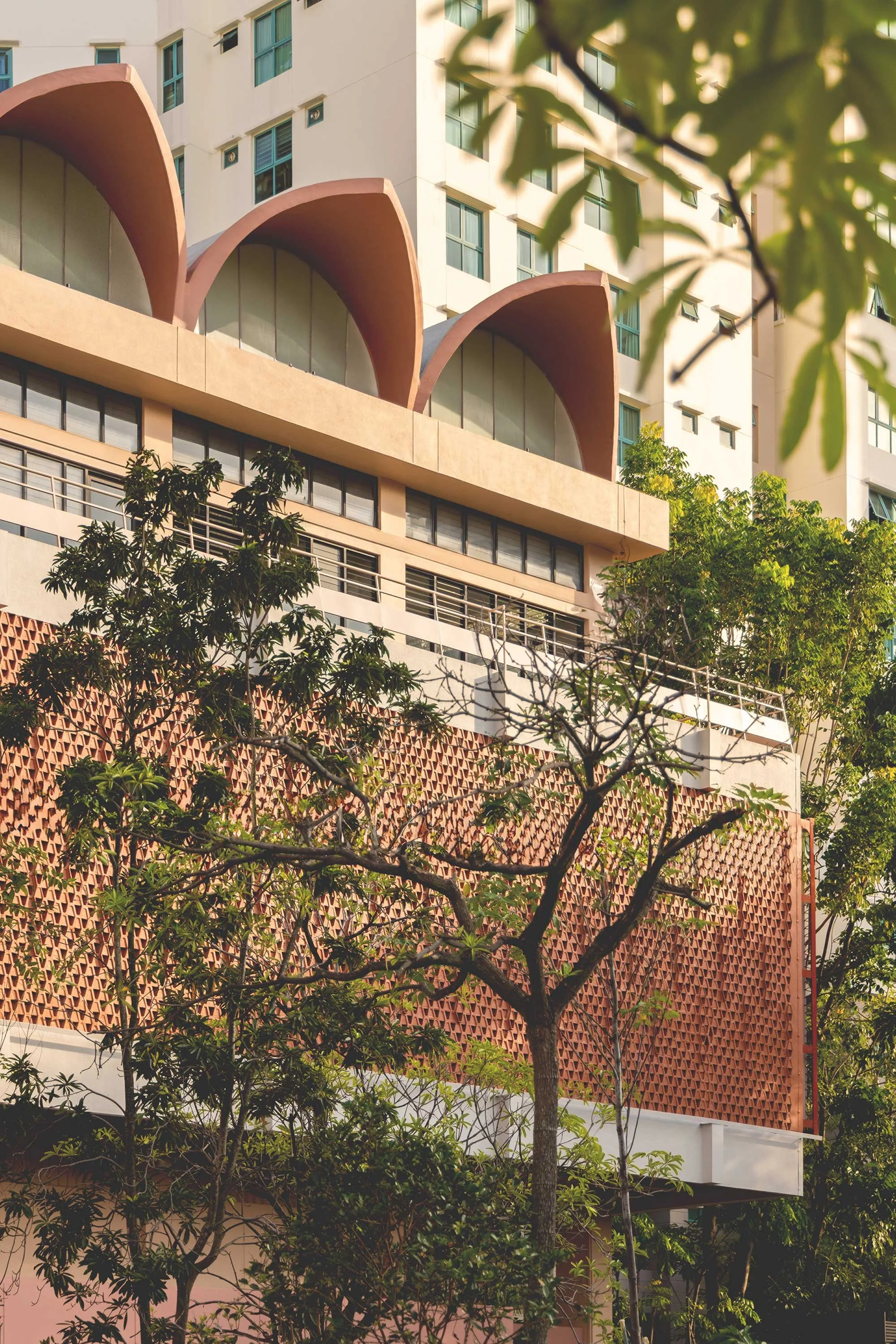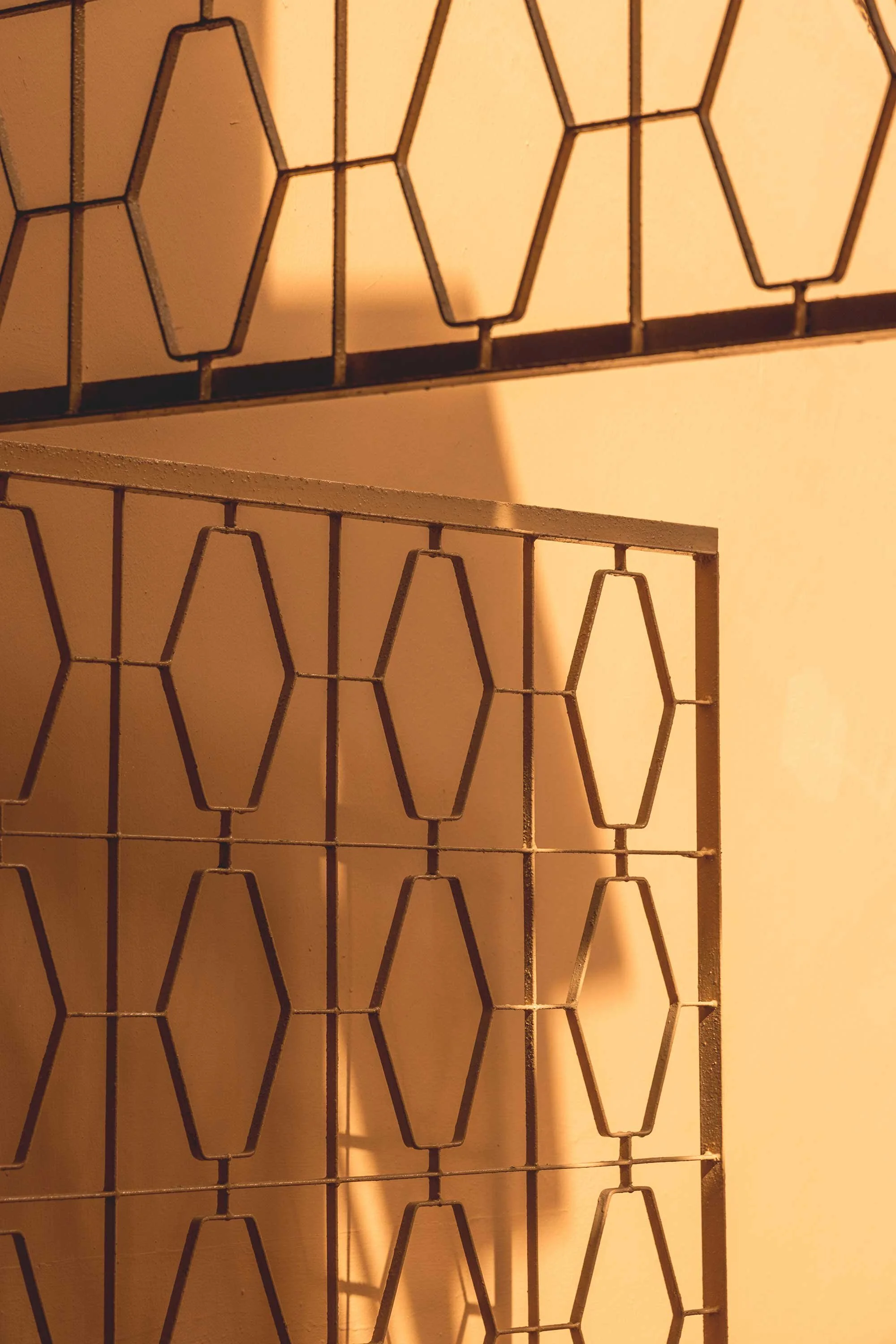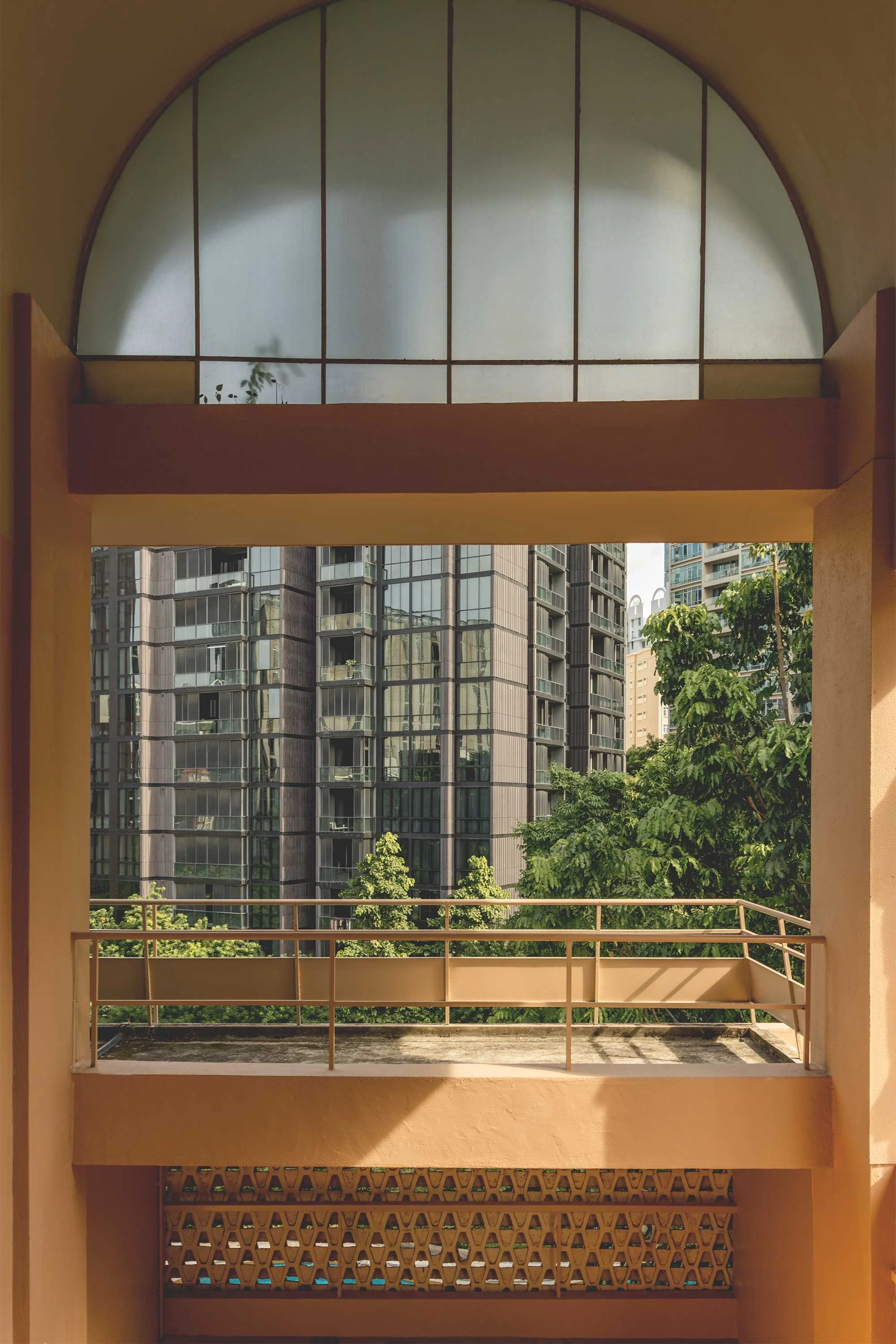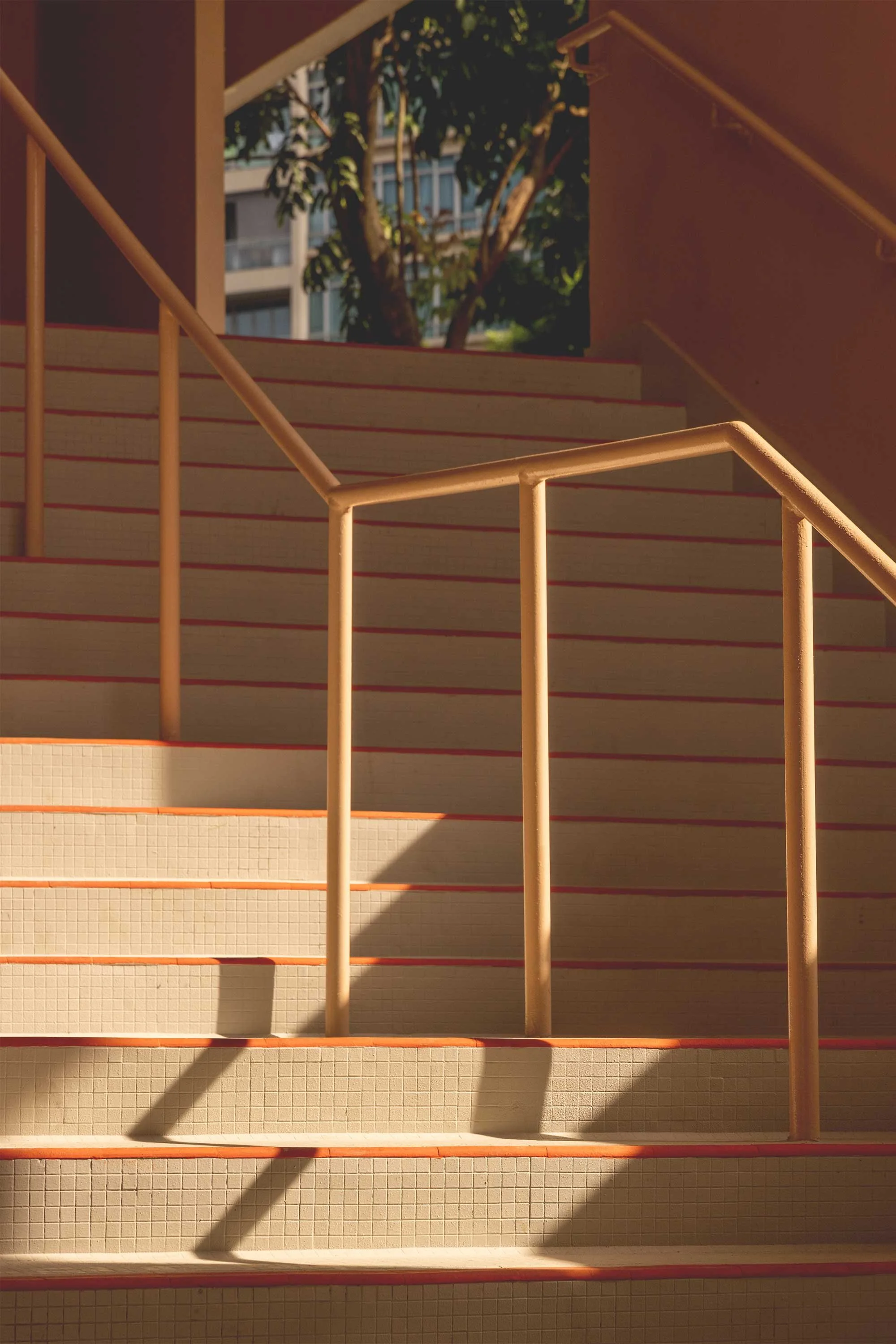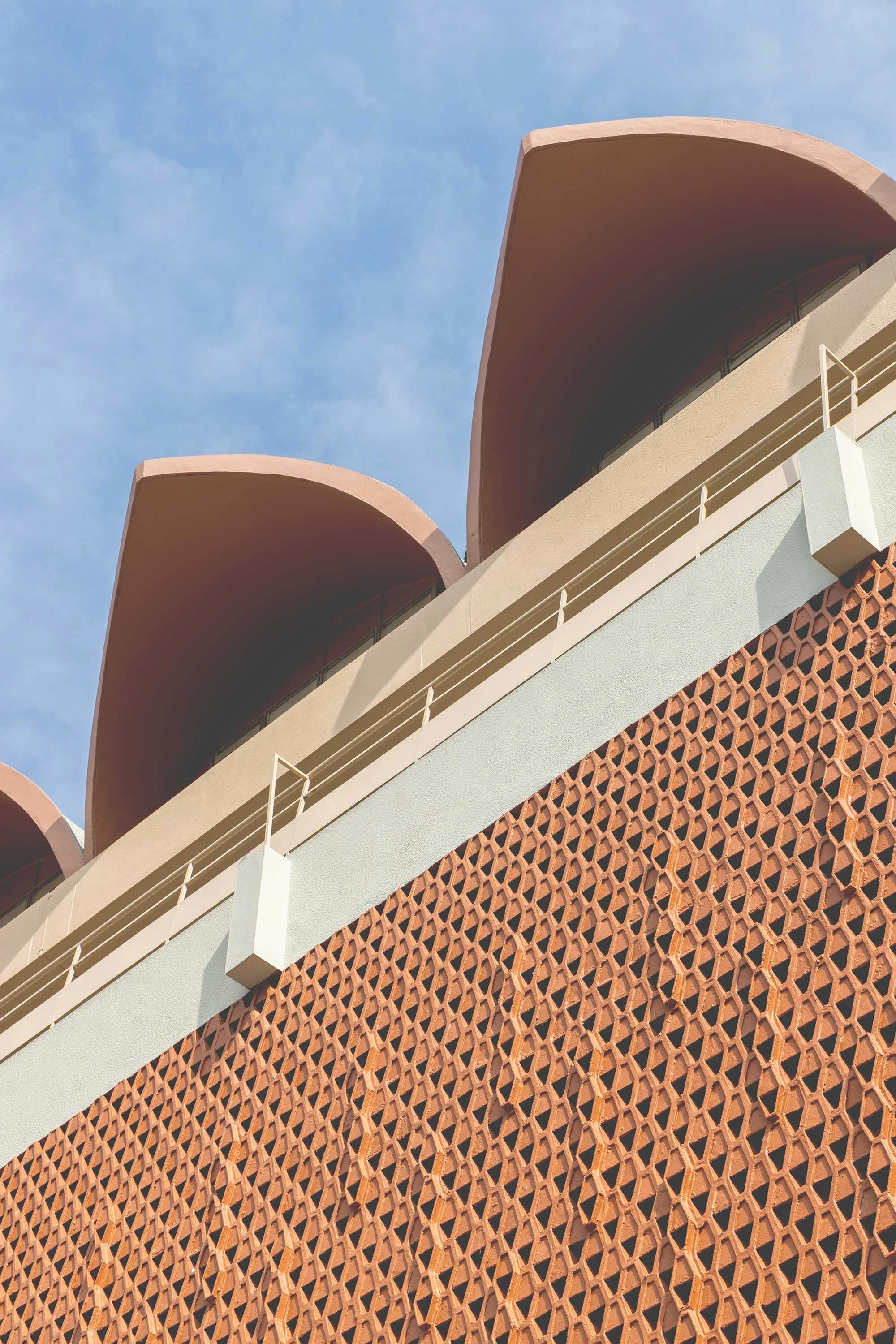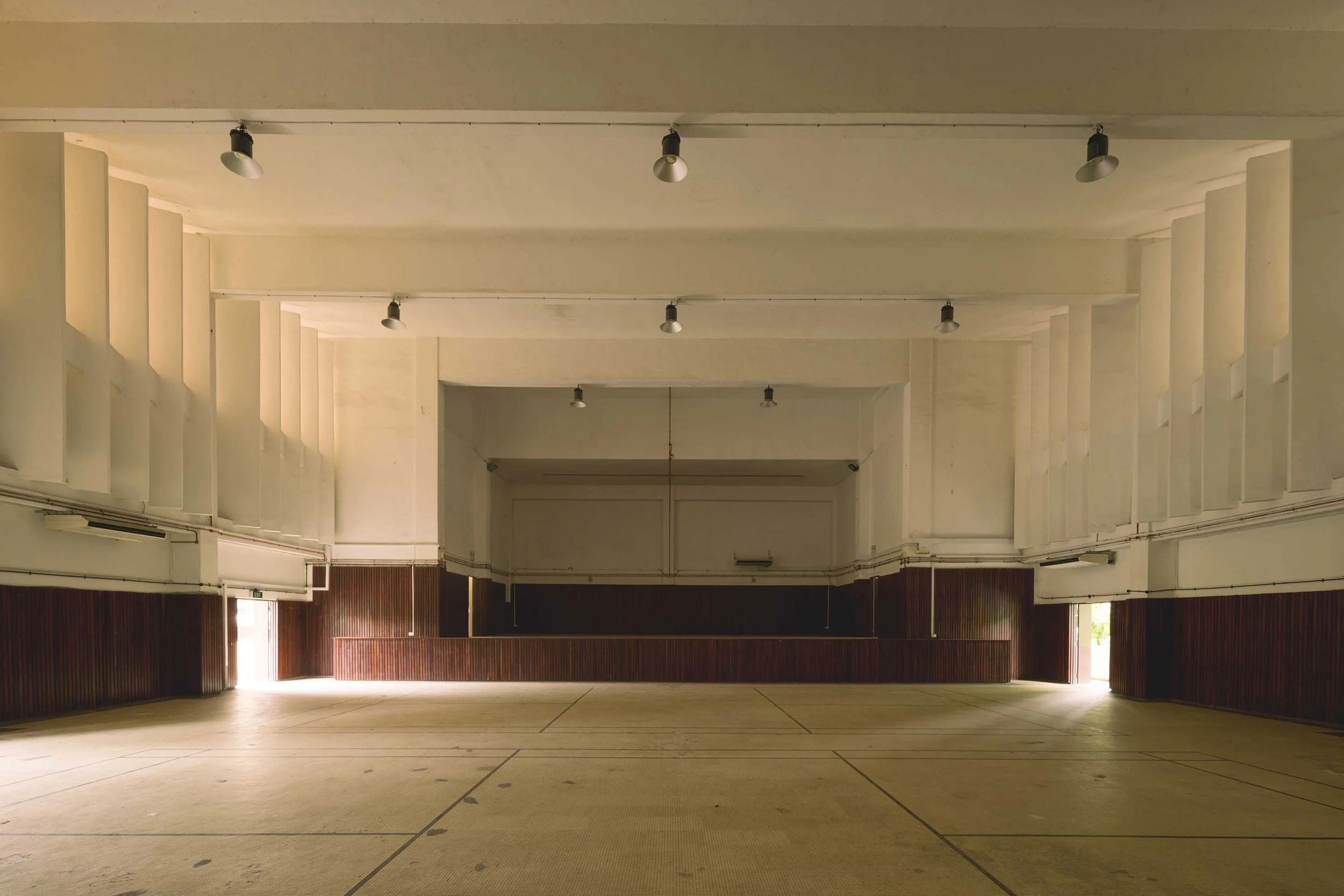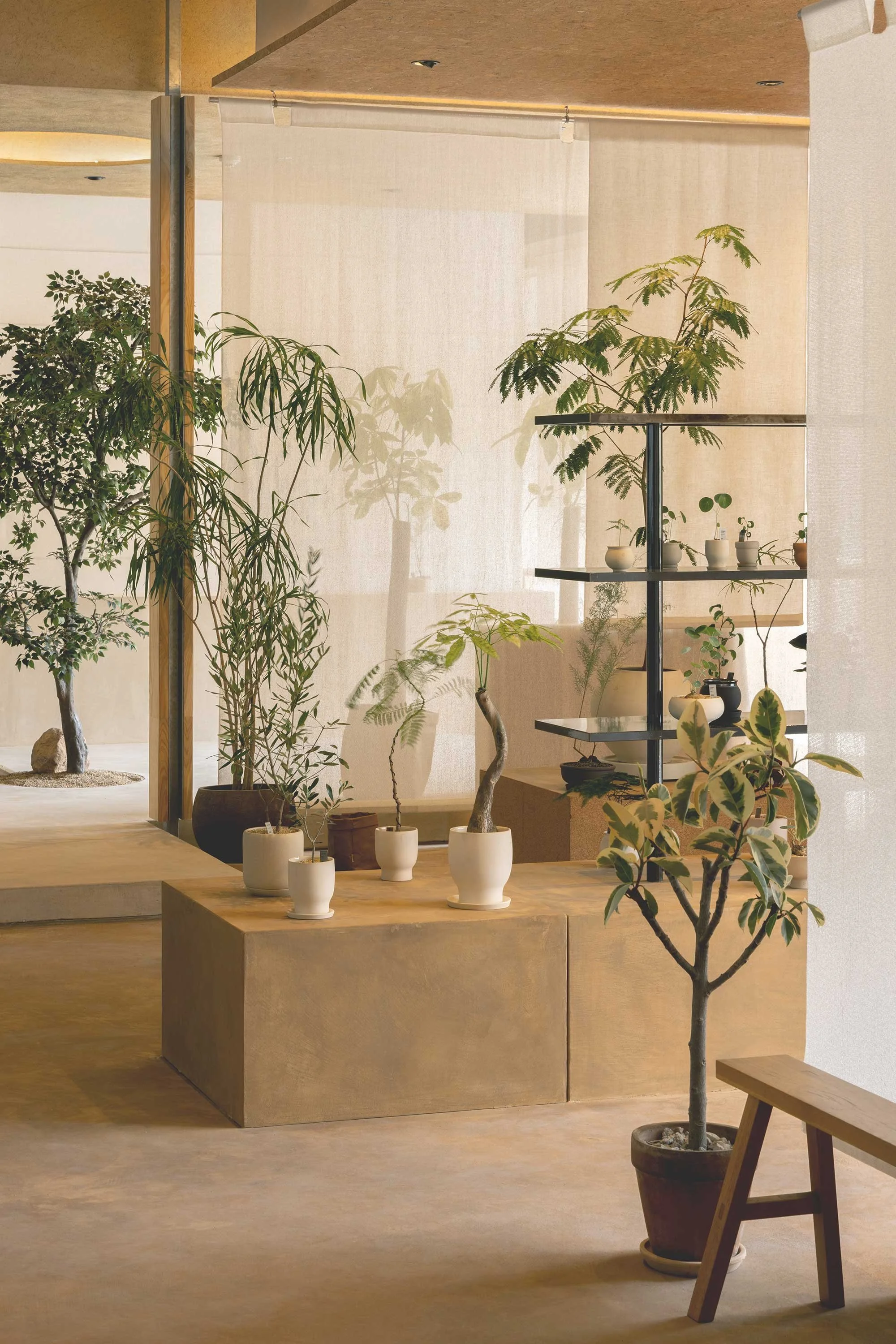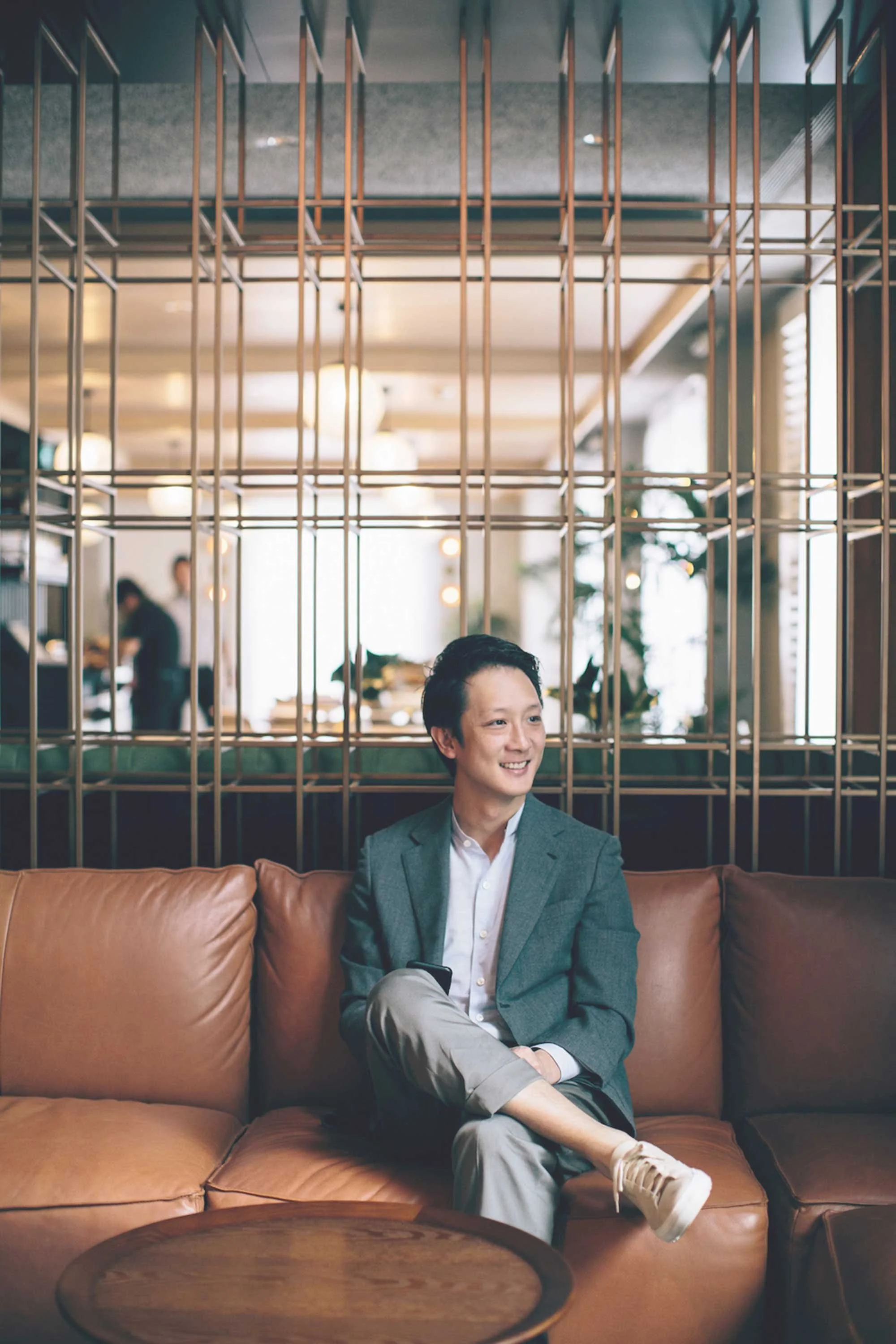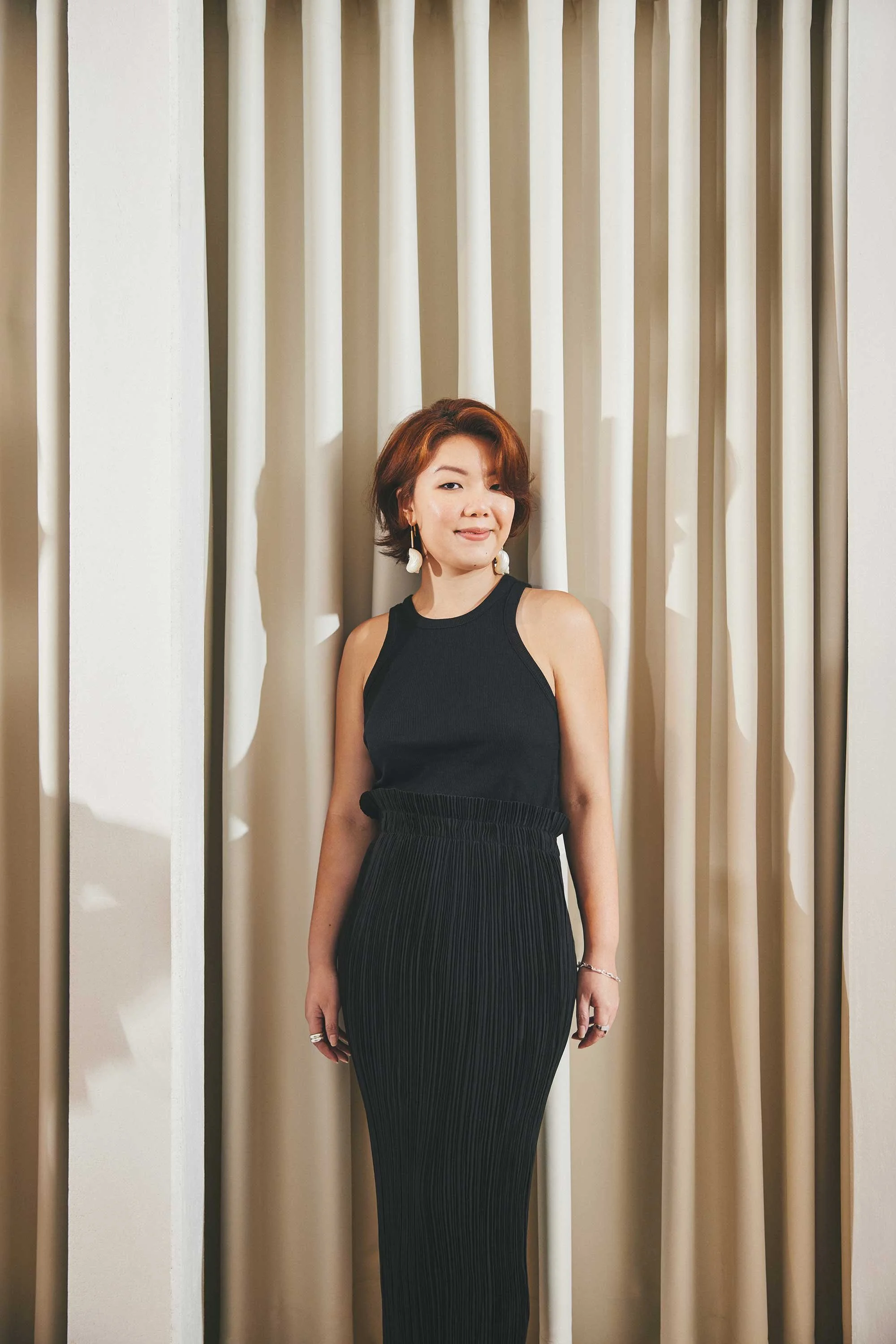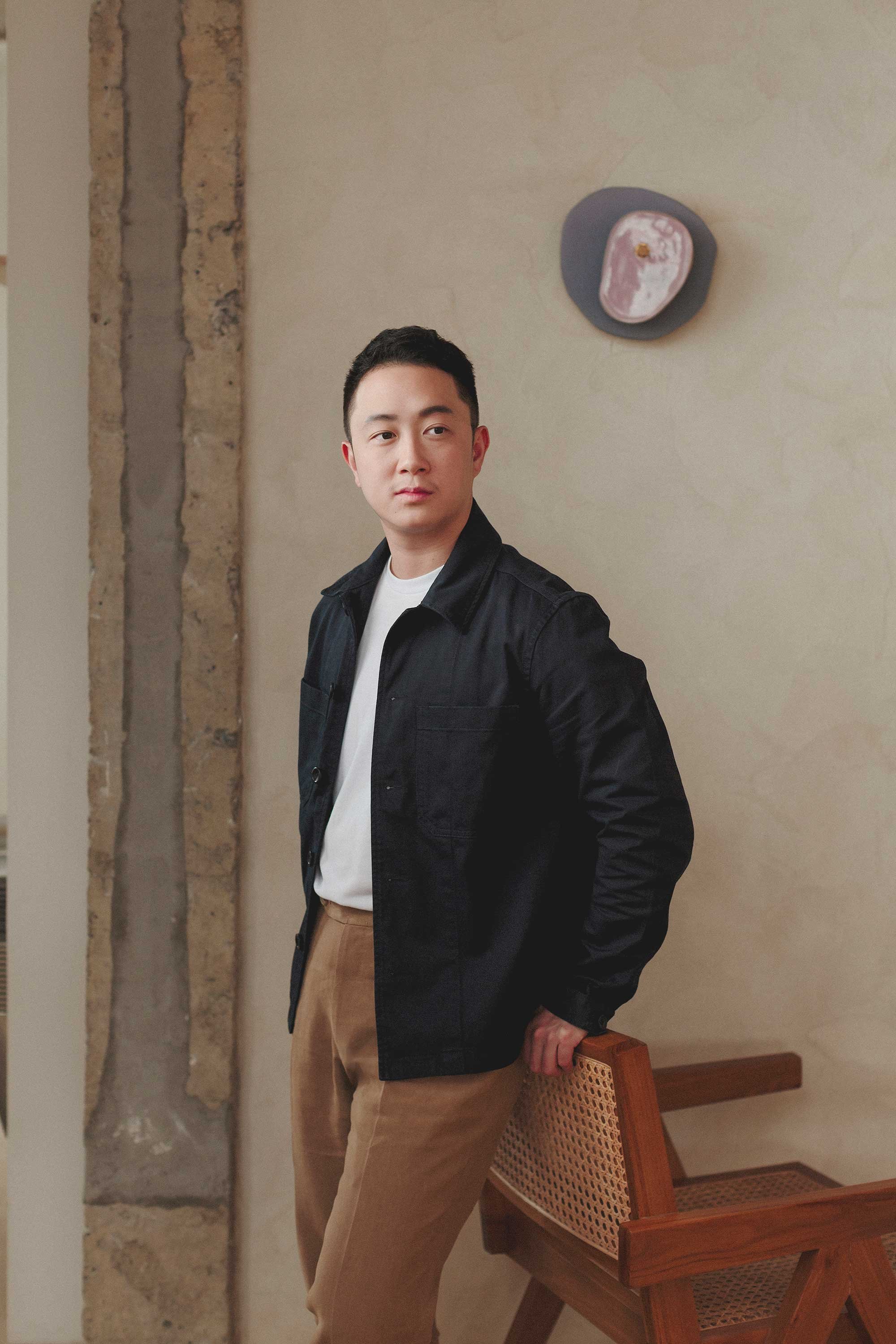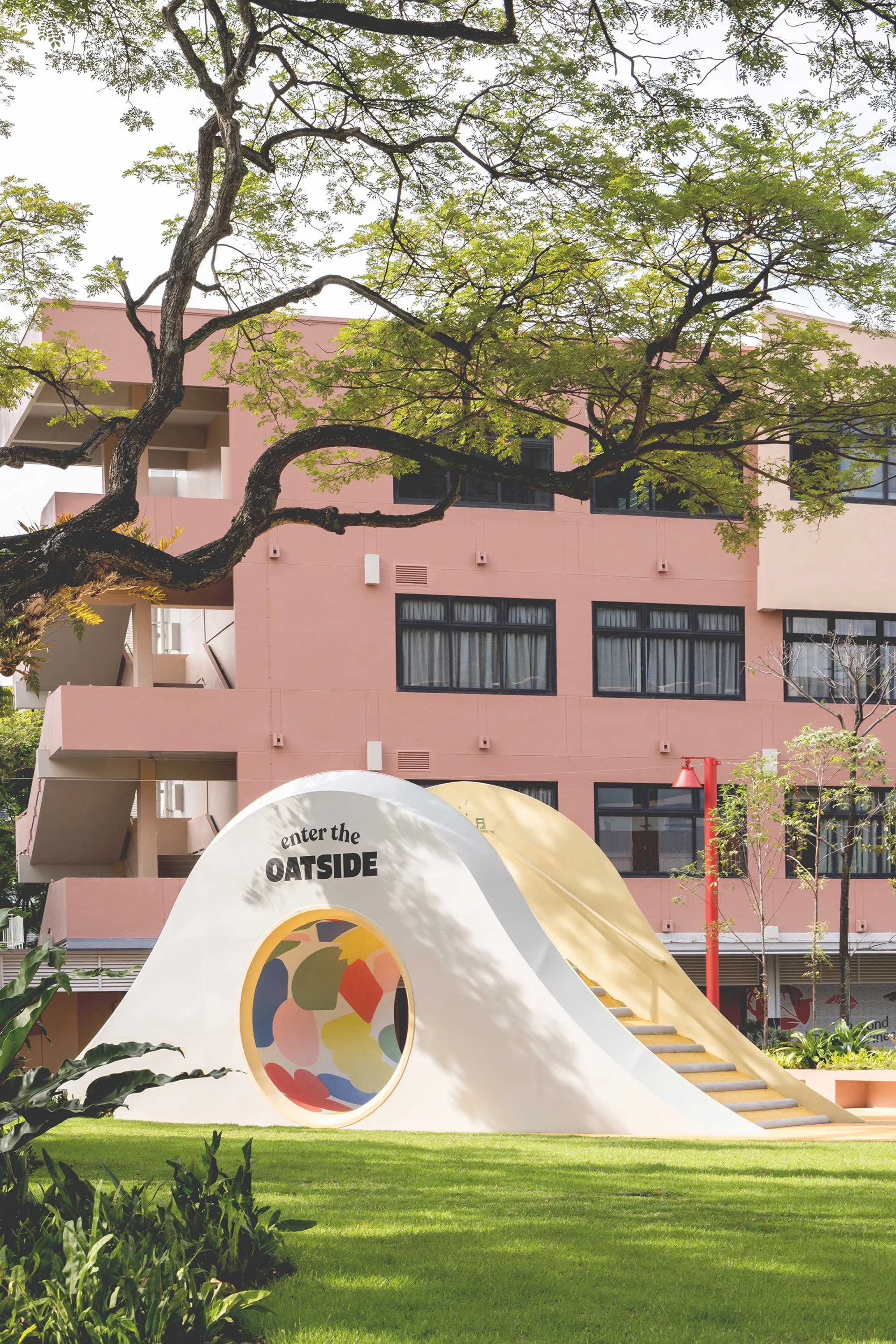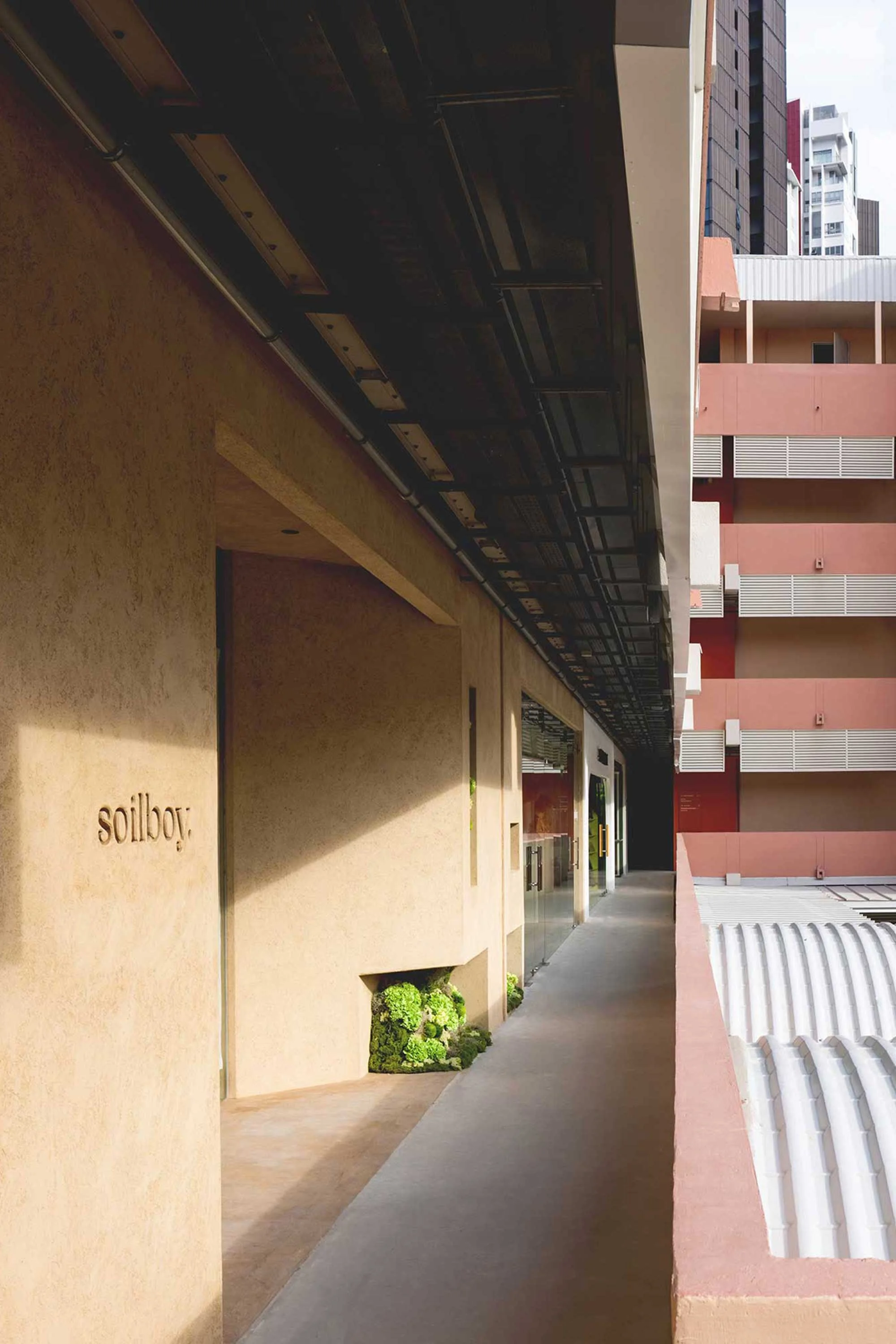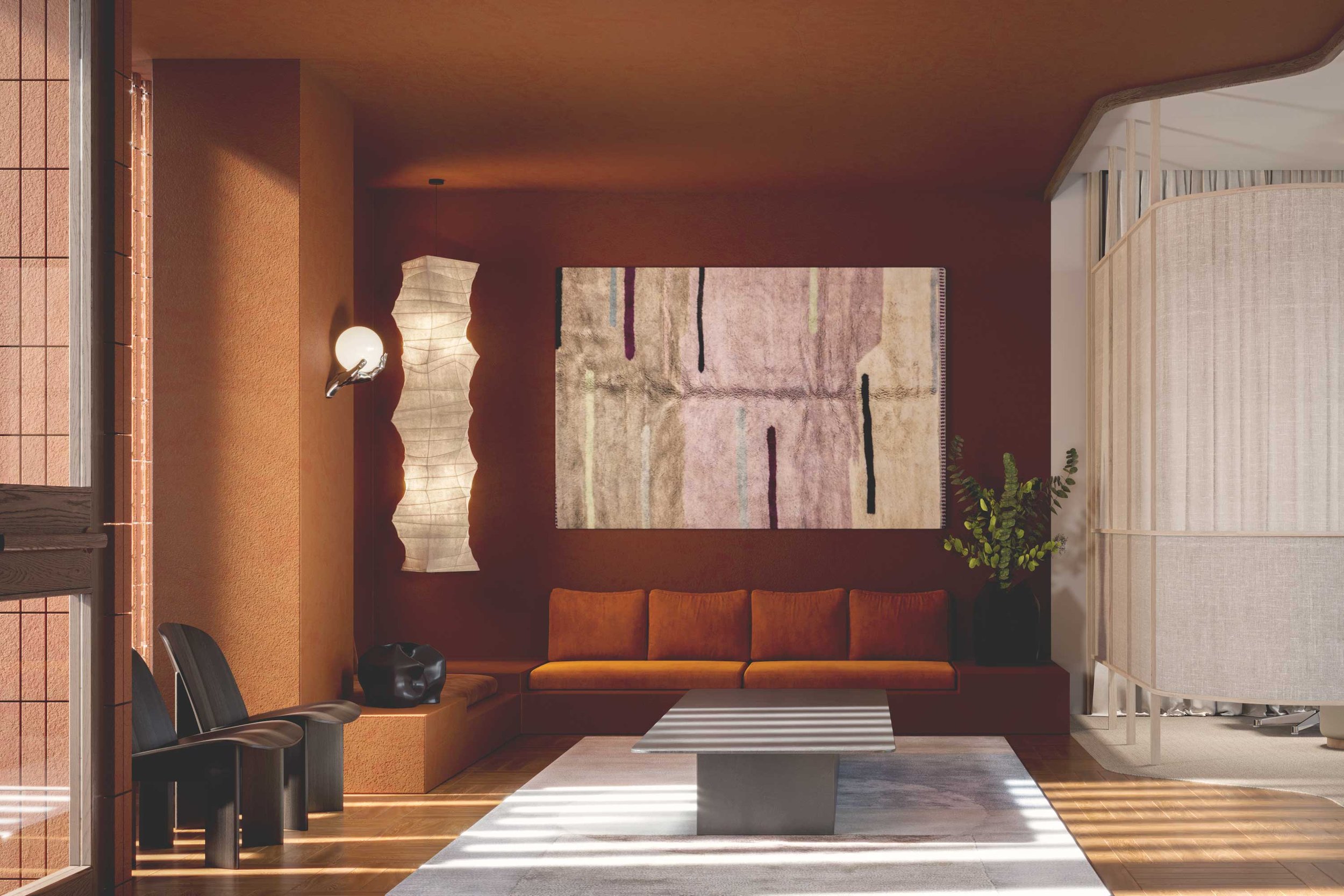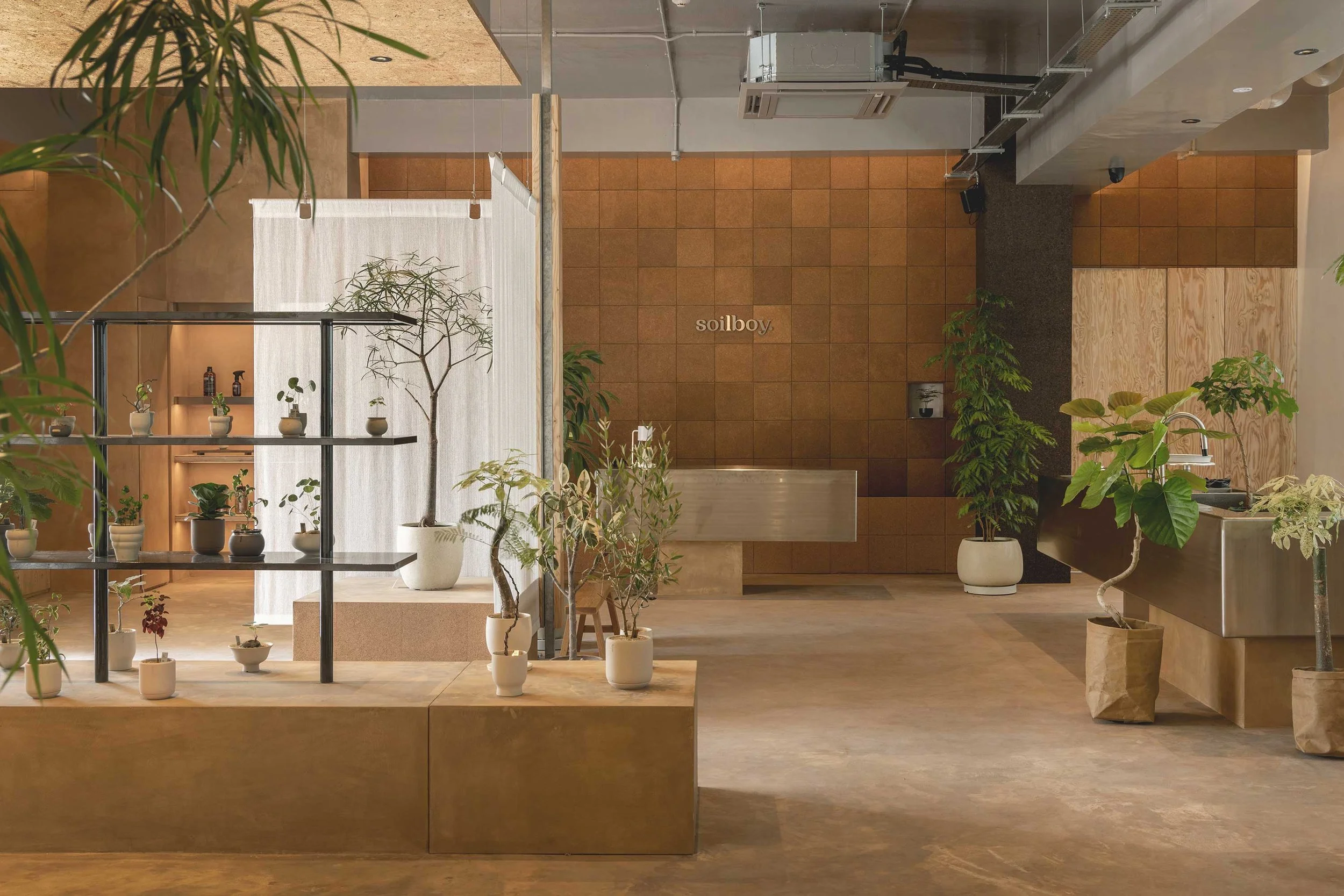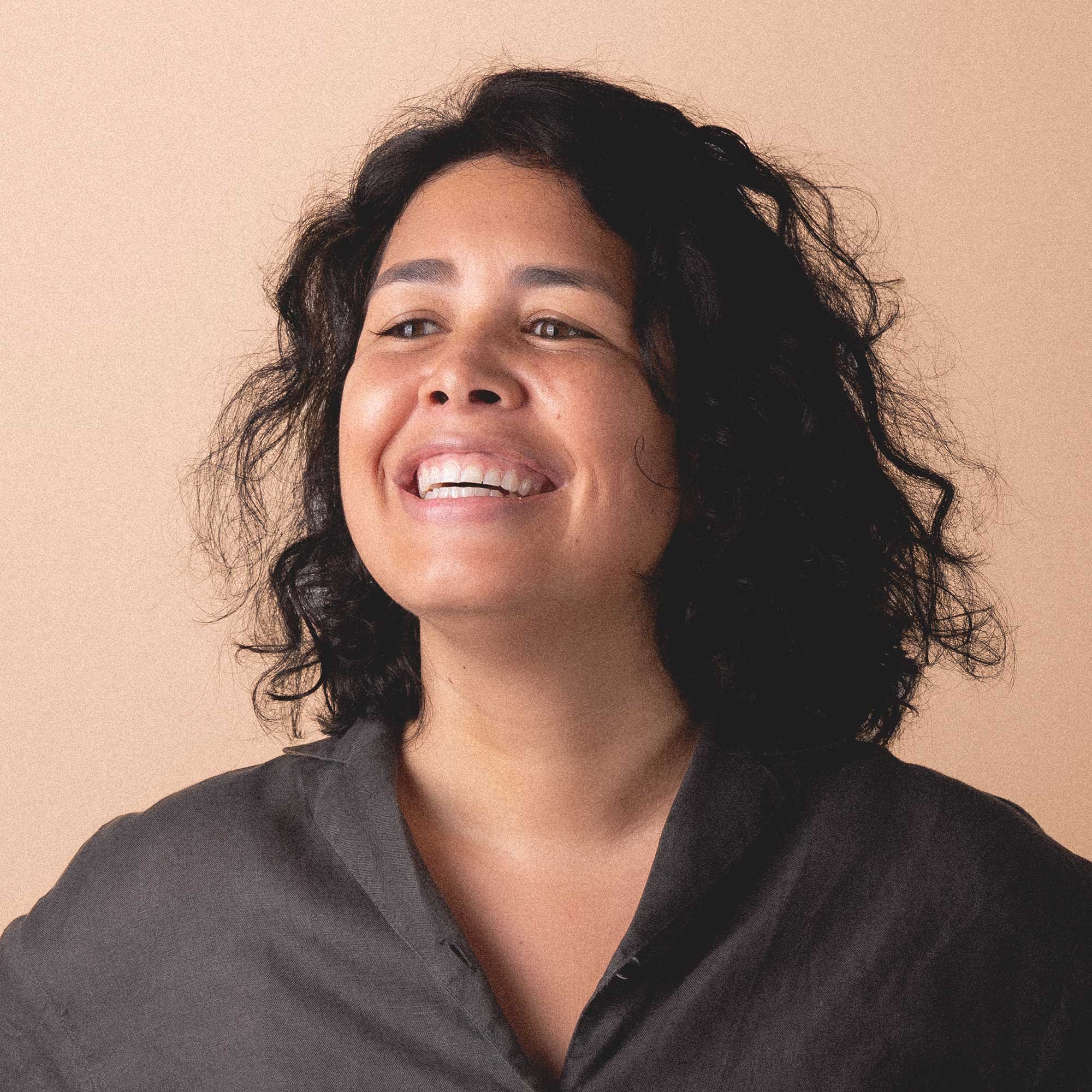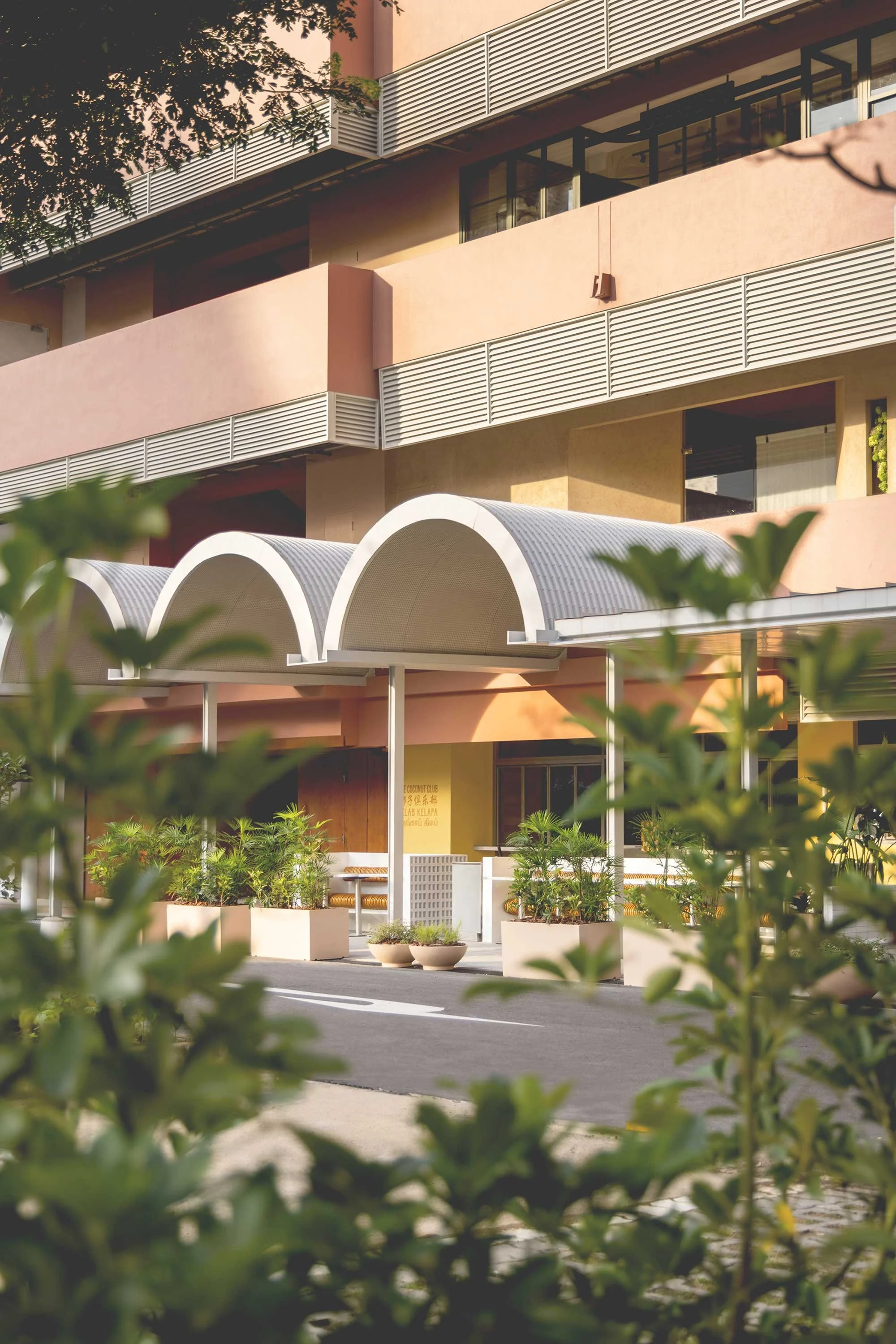New Bahru: A Home for Singapore’s Finest
From the bright minds of The Lo & Behold Group, New Bahru is a 20,000-square-metre lifestyle destination in Singapore’s River Valley neighbourhood where more than 40 businesses, from cafes and restaurants to retail and wellness, have set up shop, giving the old school a new lease on life.
Singapore’s creative scene has gathered pace in the last decade, but there are many bright talents who remain just below the surface. Often one needs to look in the city’s industrial buildings or far-flung patches to discover its movers and shakers. That’s what hospitality champion The Lo & Behold Group hopes to change with New Bahru.
It’s in this 20,000-square-metre lifestyle destination in the River Valley neighbourhood that Singapore’s independent vanguards have set up shop, capturing the nation’s creative energy in one space. More than 40 businesses, from cafes and restaurants to retail and wellness, have given the old school a new lease on life, among them a suite of firsts, such as new serviced apartment venture Alma House, skincare brand Omno’s first brick-and-mortar store and fashion label Beyond The Vines’ fun customisation studio, the brand’s largest space yet. Inspired by the idea of the school as a site for discovery and experimentation, The Lo & Behold Group has created a platform for these brands to try out fresh ways of creating and set a new course for Singaporean originality in the process.
The name New Bahru (‘bahru’ is Malay for ‘new’) is a cheeky reference to Singaporeans’ penchant for repeating words for emphasis, but it also highlights the Group’s vision for the development. By setting the stage for the city’s waymakers, this creative cluster opens up new trajectories for Singapore’s talents to make a name for themselves.
Text by Joseph Koh
Photography by Sayher Heffernan, Leslie Heng, Finbarr Fallon, Isaku Ishikawa, Darren Gabriel Leow, Rachel Tan & Rebecca Toh
Designing a Legacy
Jewel Changi Airport, Marina Bay Sands, Esplanade — these sparkling glass and metal icons may be synonymous with Singapore’s architecture today, but for most locals, the built environment is still largely modernist. Scores of public housing buildings, hawker centres, libraries and schools were erected in the 1960s and 1970s, a formative time for Singapore and a time when modernism was an apparatus for breakneck urban and social transformation. These everyday spaces weren’t designed by ‘starchitects’, which means their rectilinear forms and austere surfaces haven’t garnered quite the same appreciation and are often taken for granted.
The former Nan Chiau High School would have suffered the same fate if not for The Lo & Behold Group’s sensitive approach to redevelopment. The building hasn’t attained conservation status and given that it was designed as a school (built in 1969 by James Ferrie and Partners), the public’s perception is that of a commoditised space with seemingly little architectural merit. But Group founder Teng Wen Wee recognised the building’s significance from the beginning. He vividly remembers the first time he entered the high-ceilinged school hall a decade ago. ‘It was like stepping into a time capsule,’ he says. ‘The micro tiles, badminton court markings and wood-panelled stage took me back to my own school days.’
The clan-run high school was unlike the other basic, modular schools built by the Public Works Department at the time. Its sprawling campus was equipped with modern laboratories, workshop spaces and purpose-built lecture halls. The overall brutalist structure may be somewhat nondescript at first glance, but there are several unique elements: a row of concrete shells with sharp-edged vaults, the breeze-block facade, cascading steps in the labs and quirky U-shaped motifs.
Then there’s Small Block, the erstwhile garment factory just next door that houses Factory, a new site for pop-ups and brand takeovers. Accessible from street level, Small Block is the first point of contact for anyone arriving at New Bahru on foot, its brutalist facade a recognisable feature on the streetscape.
When it came to repurposing the old buildings for a creative cluster, Sacha Leong of London-based Nice Projects and Nan Chyuan Tiah, founder of architecture atelier Farm, knew that the goal was to preserve their historical significance: saving the landmark’s soul was paramount. ‘It’s a very special site, so we wanted to refresh the building by making it more usable while accentuating the existing elements,’ Leong says.
The pair drew inspiration from the building’s round arches to create a new sheltered drop-off point that enlivens the facade — humble corrugated metal, rather than flashy steel, is used as a way of retaining the original building’s prosaic purpose.
Various tenants, too, have retained or referenced the school’s iconic features. Modern Middle Eastern restaurant Artichoke and Sri Lankan restaurant Kotuwa have kept the jalousie windows and vintage wrought-iron grilles from the school canteen, while the louvres have also made their way into serviced apartment Alma House’s interior design. Leong took cues from the site’s breeze-blocks when he designed The Coconut Club’s newest outpost.
Leong and Tiah’s most significant intervention was introducing a central lawn by relocating a series of open-air parking lots. It’s a poignant move that preserves the existing rain trees onsite and reclaims the original function of the area: a parade square, and an informal after-school gathering point. ‘It was important to recreate this centre for the site,’ Tiah says. ‘Not just for New Bahru, but for the larger River Valley neighbourhood.’ Surrounded by condominiums and shophouses, the lawn was envisioned by Leong as a ‘shared living room’ that brings people together, complete with seating and a children’s play zone that harks back to the iconic 1970s playgrounds in Singapore’s public housing estates.
The new elements may not be grand in gesture, but they’re big on symbolism. Against the backdrop of modern throwaway culture, particularly in a city that suffers from the cultural amnesia that’s a side effect of rapid urban change, New Bahru stands as a model for retaining a sense of place — histories, textures and memories — while creating anew. With time, this school-turned-creative complex could become an institution in its own right, and it would be nothing short of a fitting full-circle moment.
Light and air filter in through breeze-blocks in the school hall mezzanine
Plant design studio Soilboy has opened a flagship store at New Bahru
Building Community
Whether it’s turning a chapel into a stunning brasserie or transforming warehouses into a chic hotel, The Lo & Behold Group has left an indelible mark on Singapore’s hospitality scene since its founding in 2005. Approaching the two-decade mark, it shows no sign of slowing down — quite the opposite, with New Bahru being its most ambitious undertaking to date.
But while the new multidisciplinary creative complex may be the largest in scale and vision, as with all other Group establishments, it originated from a personal place. For Teng Wen Wee, every project starts with a familiar feeling: that split-second when his heart leaps with possibility as he enters a space. ‘There was a certain magic when I stepped into the school hall for the first time,’ he recalls. ‘The spaces I tend to fall in love with provide a unique perspective of Singapore or tell an interesting facet of the country’s history.’
It’s no secret that the city’s retail scene has been languishing for years, with cut-throat developers building uninspiring malls based on rinse and repeat formulas and franchised brands. In this landscape, where market forces simply don’t favour start-ups and independent brands, Wee is breaking new ground with New Bahru by going all in with small businesses. ‘From the very beginning, we’ve wanted to bring in boundary-pushing local brands — and we’ve actually gone one step further as all our tenants come from Singapore,’ he says.
The Lo & Behold Group founder Teng Wen Wee
Fashion label Rye founder Bessie Ye
Grant Wee, founder of wellness concept Hideaway
Bowen Chiou and Leon Foo, founders of coffee-tech company Morning
New Bahru’s tenants have risen to the occasion, many moving beyond the traditional brick-and-mortar concept to offer tactile and personalised experiences in-store, such as Make by Ginlee’s upcycled bag workshops, Crafune’s leather crafting classes and coffee-tech brand Morning’s hands-on tasting sessions.
By bringing together the island’s best independent businesses, Wee believes that New Bahru will become a cornerstone of Singaporean creativity. He hopes that the development will not only boost entrepreneurs’ and creators’ confidence to explore new methods and approaches, but also help foster collaborations between talented neighbours. Alma House, for example, is already partnering with its F&B neighbours to offer exclusive deals for guests; and fashion label Rye is behind the uniforms for bistro-bakery Átipico | Room #15.
In its mission to ‘make Singapore more lovable’, The Lo & Behold Group has filled many voids in the landscape, and New Bahru continues this approach. While standout restaurants and bars have long been a feature of River Valley, the area lacked an epicentre that brought people together. Now, New Bahru’s open lawn and flexible venues might rally the precinct in new ways, and there’s a line-up of exhibitions, pop-ups, parties and more already under way.
Above all, Wee envisions New Bahru as a type of greenhouse that inspires and attracts the next generation of local players and creatives. ‘As more people, both locals and travellers, fall in love with Singaporean brands, we hope more game-changing brands will want to chip in and play a role in taking New Bahru to the next level,’ he says. Having started The Lo & Behold Group with local rooftop bar Loof all those years back, Wee still advocates for Singaporean ingenuity. If anyone knows how to tell this island nation’s story in beautiful and meaningful ways, it’s him.
New Bahru is conceived as a ‘shared living room’, with corridors reminiscent of five-foot ways, plenty of open space and even a children’s play zone reminiscent of the public housing estate playgrounds of the 70s
Meet the Tenants
Hideaway
Wellness
The Trapeze Group’s new wellness concept was designed by local studio Parable, its second project for the brand after the Trapeze Rec. Club in Tanjong Pagar. The serene yet design-forward spa includes a bathhouse with private and semi-private cold plunges and infrared saunas.
Soilboy
Plant Design Studio
Soilboy’s mission ‘to inspire a sense of curiosity for the greener things in life’ is made manifest in its flagship store. The space, designed by Silo, offers a considered selection of plants alongside the brand’s signature ceramics handmade in Korea and beautiful plant installations, and will host hands-on workshops.
Morning
Coffee Tech
New Bahru is the first physical location for many of the tenants. Among them is Morning, where coffee lovers can get their fix of specialty capsule coffee from around the world and experience the brand’s new Morning Machine coffee maker. Designed by architects Akira Kita and Elita Ong, the new store has a tasting bar for coffee sampling and will also host bar takeovers from visiting coffee roasters.
Rye
Fashion
Slow fashion brand Rye’s flagship store at New Bahru embodies
the brand’s vision of well-crafted contemporary staples for women. Amy Lim of Pupil Office has put her mark on the space, creating a minimal yet effective backdrop filled with art and objets that backgrounds Rye’s pieces.
Kotuwa
Dining
Sri Lankan restaurant Kotuwa is chef Rishi Naleendra’s third venture, and its new location is a lively, colourful affair brought to life by Perinelli Design. Expect bold interiors, a refreshed menu of Sri Lankan classics and a full-fledged cocktail bar.
Alma House
Serviced Apartments
Serviced apartment concept Alma House was designed by Farm — the studio behind hotel projects like Lloyd’s Inn, The Clan Hotel and The Barracks — as a base for ‘travellers who look beneath the surface’. Former classrooms have been transformed into charming rooms and apartments, and the 83-room property is a perfect base from which to experience New Bahru and explore Singapore.
Kaïa Nelk
Studio Yono
Art & Design Retailer
How do you curate Studio Yono’s products?
Our collection is a reflection of our personal tastes. We only bring in art and design pieces that we’d buy for our own home. We try to curate an original collection and bring in design brands that weren’t available in Singapore before.
How is this new store different from the original Studio Yono in Tiong Bahru?
We’re planning to bring in both new brands and new products from brands we already carry, such as Sowden, Foekje Fleur, Studio Arhoj and more art prints from Wrong Shop.
We’ll also add furniture to our collection, starting with Portuguese furniture brand Util, and will bring in stationery from British design brand Wrap and from independent graphic designers and illustrators Marjolein Delhaas, Makitoy and Youngchae Lee.
How did you approach designing your new shop?
Our collection is quite colourful, so we decided to keep the design of our store minimal. Retail stores often use a lot of built-in carpentry but we decided to work with a mix of loose furniture instead, to give the space more character. The pieces are a mix of new and vintage designs from Noden, Copan, Grafunkt and Cult Design, plus independent designers and stores in Europe. We often host events in our store, and the new interiors will allow us to move things around and create new looks.
Dominic Tan
Odem
Why a makkoli bar?
On one of my trips to South Korea, I became very intrigued by the process of brewing makkoli. The craft makkoli scene has only really started to flourish in the last ten or so years, thanks to an increase in knowledge and the quality of makkoli being made. In Singapore we’ve had access to commercially available makkoli for over a decade, but the options are usually full of artificial flavours, sweeteners and preservatives. Craft makkoli, on the other hand, is hand-brewed in small batches using high-quality ingredients. I wanted to bring this experience home because Singaporean consumers are known for their appreciation of quality.
Why did you pick New Bahru as the location for Odem?
New Bahru’s fresh concept captured our attention. It represents something unique in Singapore’s landscape, and we have confidence in The Lo & Behold Group’s ability to curate a collection of brands and concepts that showcase the best of Singapore’s culinary and lifestyle scenes.
What was your brief to Sacha Leong from Nice Projects for the design of Odem?
We wanted a vibey, intimate space that incorporates traditional design elements with a modern touch. Sacha pulled together various traditional Korean architectural elements but redefined them through a contemporary lens. The charred ash wall panels are inspired by one of the breweries we work with, for example, and the carpentry was redesigned to reference traditional somok joinery, while the matt-red linoleum floor and perforated stainless steel ceiling panels create a sense of energy and sensuality.
Meet the Family
The Lo & Behold Group Directory
Eat & Drink
Bar Bon Funk
New Bahru, 46 Kim Yam Road bonfunk.com
Claudine
39C Harding Road
claudinerestaurant.com
Esora
15 Mohamed Sultan Road
restaurant-esora.com
Fico
1300 East Coast Parkway
ficomasseria.com
Le Bon Funk
29 Club Street 277 Holland Aveue
bonfunk.com
Overeasy
One Fullerton, 1 Fullerton Road
overeasy.com.sg
Odette
1 St Andrew’s Road
odetterestaurant.com
Po
The Warehouse Hotel, 320 Havelock Road, Robertson Quay
po.com.sg
Somma
New Bahru, 46 Kim Yam Road somma.world
Tanjong Beach Club
120 Tanjong Beach Walk
tanjongbeachclub.com
The Coconut Club
269 Beach Road
97 Frankel Avenue
New Bahru, 46 Kim Yam Road thecoconutclub.sg
Shop
Clink Clink
clinkclinkshop.com
Sleep
The Warehouse Hotel
320 Havelock Road, Robertson Quay
thewarehousehotel.com
New Bahru
46 & 58 Kim Yam Road, Singapore
newbahru.com
A Project by
The Lo & Behold Group
lobehold.com

